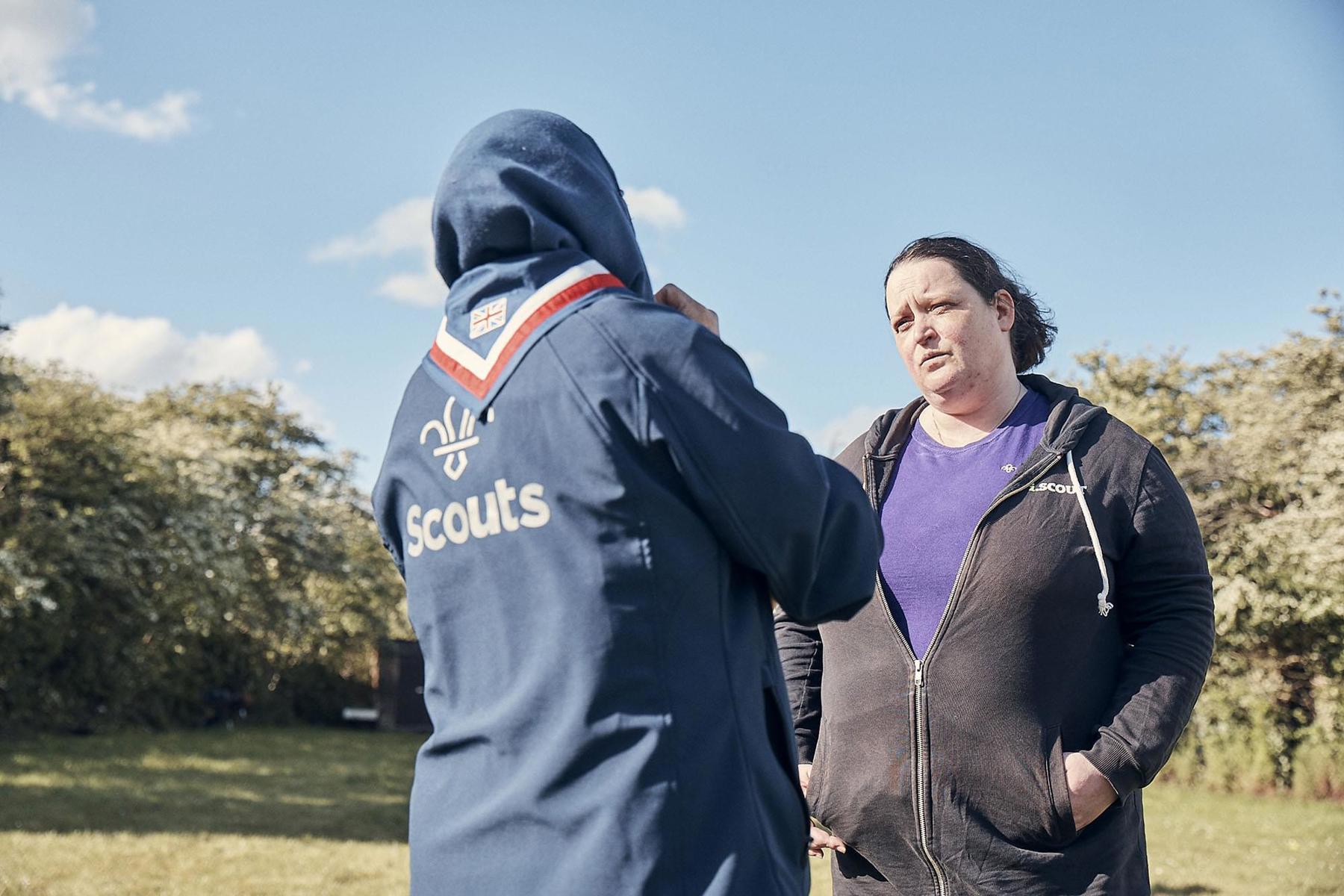How are Scouts tackling period stigma and period poverty?
Scouts are linking with period charities to learn about menstruation, period stigma, period poverty – and what they can do to help.
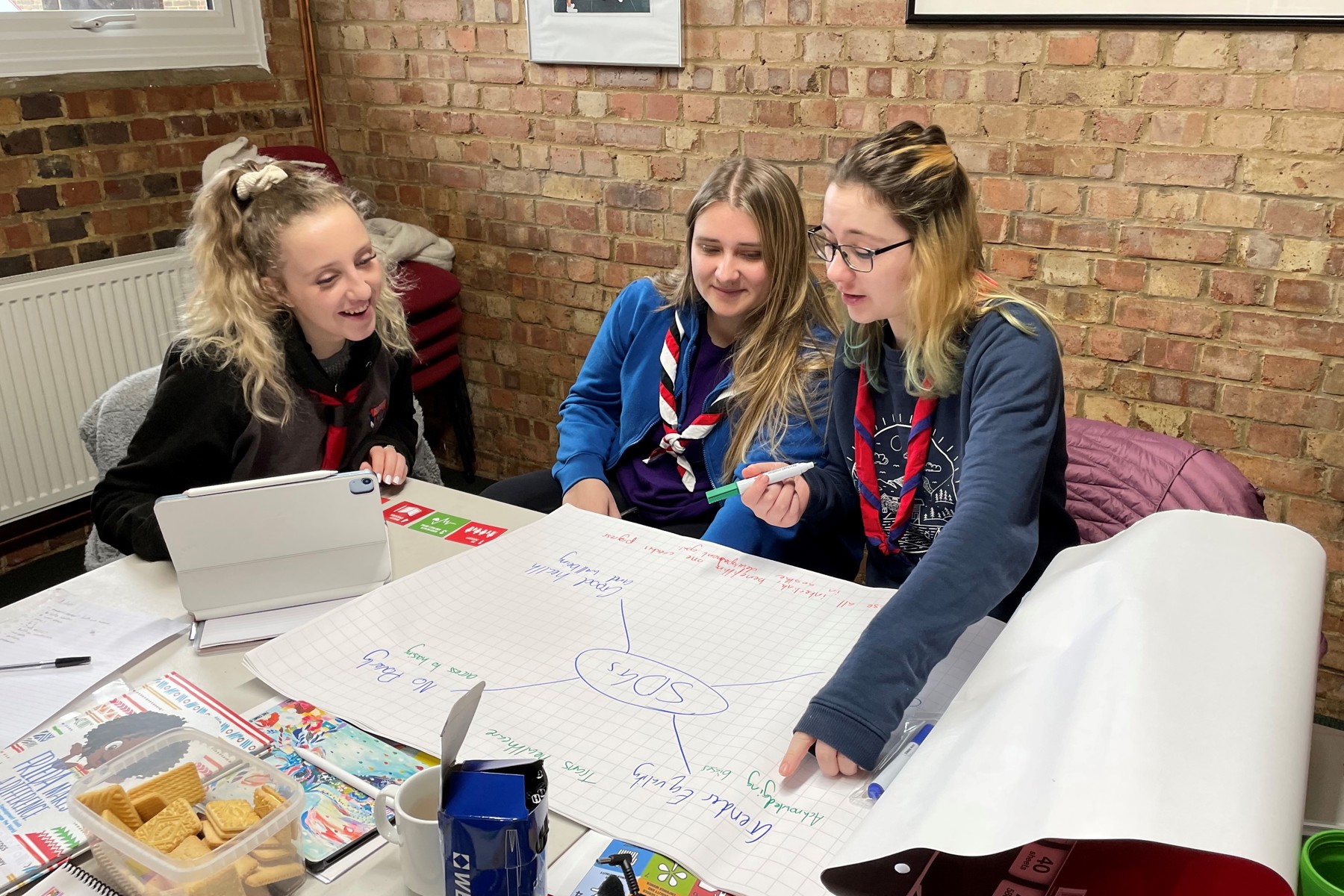
Periods go by many names, such as ‘shark week’, ‘code red’, or ‘moon time’ sound familiar. But, menstruation affects pretty much everyone, whether they menstruate or not. Periods aren’t dirty, shameful or scary, but without the right products and knowledge they can be tricky to manage.
It doesn’t help that conversations are restricted to half of the population. ‘There’s still period stigma and that keeps people stuck,’ explains Gabby Edlin, founder of Bloody Good Period, a period charity that distributes menstrual products to asylum seekers and refugees.
Mark Arnold, Broadstone Scout Troop Section Leader, saw an article about period poverty and the importance of men knowing about menstruation. Determined to eliminate period stigma, the whole Troop spent an evening learning about period poverty, menstruation, and where exactly you put a menstrual cup.
'Period poverty’ occurs whenever someone can’t access the products they need to have a healthy period. Most commonly that’s situations where people can’t afford menstrual products,’ explains Gabby.
Sometimes period poverty means delaying changing, or using lower quality, products. Sometimes it means not having them: 10% of young people who need menstrual products are unable to afford them. In the worst cases, people resort to alternatives including toilet roll, newspaper and even socks. Period poverty is uncomfortable and unhygienic, and it interferes with daily life: it causes 137,000 young people in the UK to miss school regularly.
Broadstone Scouts worked with The Red Box Project, a period charity that provides pads, tampons, and new underwear to schools. Although young people will soon have access to free menstrual products in schools (in England, Scotland and Wales), it’s likely that period charities will still be needed. They’ll be essential during weekends and school holidays (and for people who don’t attend school), but they also provide education around periods.
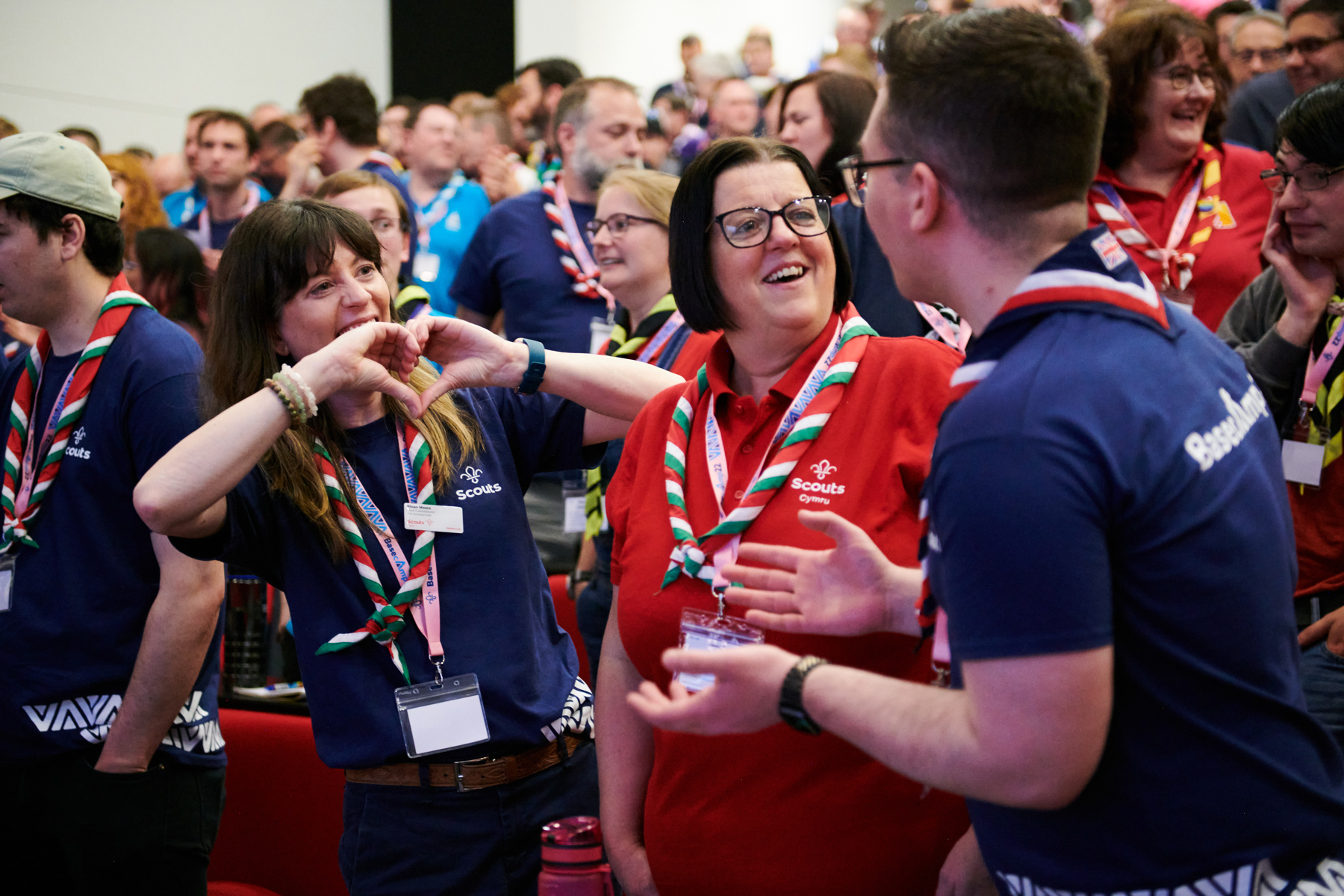
Education gap
Period poverty is only part of the problem; distributing products is only part of the solution. Period poverty ‘can apply not only to a lack of access to products but also to what we call “a poverty of knowledge”’, explains Gabby, ‘There’s a whole knowledge gap affecting people for a variety of reasons.’
What was surprising was that everyone at Broadstone Scout Troop (including the girls and Young Leaders) lacked knowledge. ‘Nobody guessed what the menstrual cup was,’ says Mark, ‘and there were lots of incorrect guesses in the relay race quiz too’.
Broadstone Scout Troop isn’t unusual. Research found that one in seven young people didn’t know what was happening when they started their period. The image of Scouts mistaking a pad for ‘a big bandage’ or a cup for ‘a miniature ice cream cone’ is amusing; the effects of poor menstrual education are anything but.
Education helps everyone realise that people who menstruate need both products and access to facilities. ‘In schools,’ says Gabby, ‘people are told they can’t go to the toilets in the middle of lessons, which can be really distracting and even dangerous if you have your period.’ Homeless people, and disabled people who need a hoist, can also struggle to access suitable toilets.
Without education, people also don’t know when to seek help. ‘There are people with conditions like endometriosis,’ explains Gabby. With endometriosis, cells like the ones in the uterus lining grow elsewhere. Every month, they build up, break down, and bleed in the same way as a period, but the blood can’t escape. Symptoms can include pain, fatigue, bladder and bowel problems and painful or heavy periods. ‘It affects one in 10 who menstruate, but can take up to 10 years to diagnose and recognise,’ Gabby continues. Education helps people with a range of conditions know when things are symptoms – not just something ‘normal’ to be endured.
By reducing period stigma, education also reduces menstruation-based shame and teasing. When Mark held up products, ‘there were a few cringey faces… one of the girls was absolutely mortified… there was some “uuugh” noises and a few red faces’.
In the UK, nearly half of young people who have periods are ashamed of them. Such shame about a regular bodily function has a negative effect on mental health. Teasing can come from people of all genders, but research found that a lot of worry and embarrassment around menstruating at school stems from the anticipation of adverse reactions from boys.
‘When we’re on camp and one of the girls gets her period,’ says Mark, ‘you don’t want the boys laughing or making jokes if they catch sight of a pad or a tampon. You just want a bit of understanding and to normalise it.’
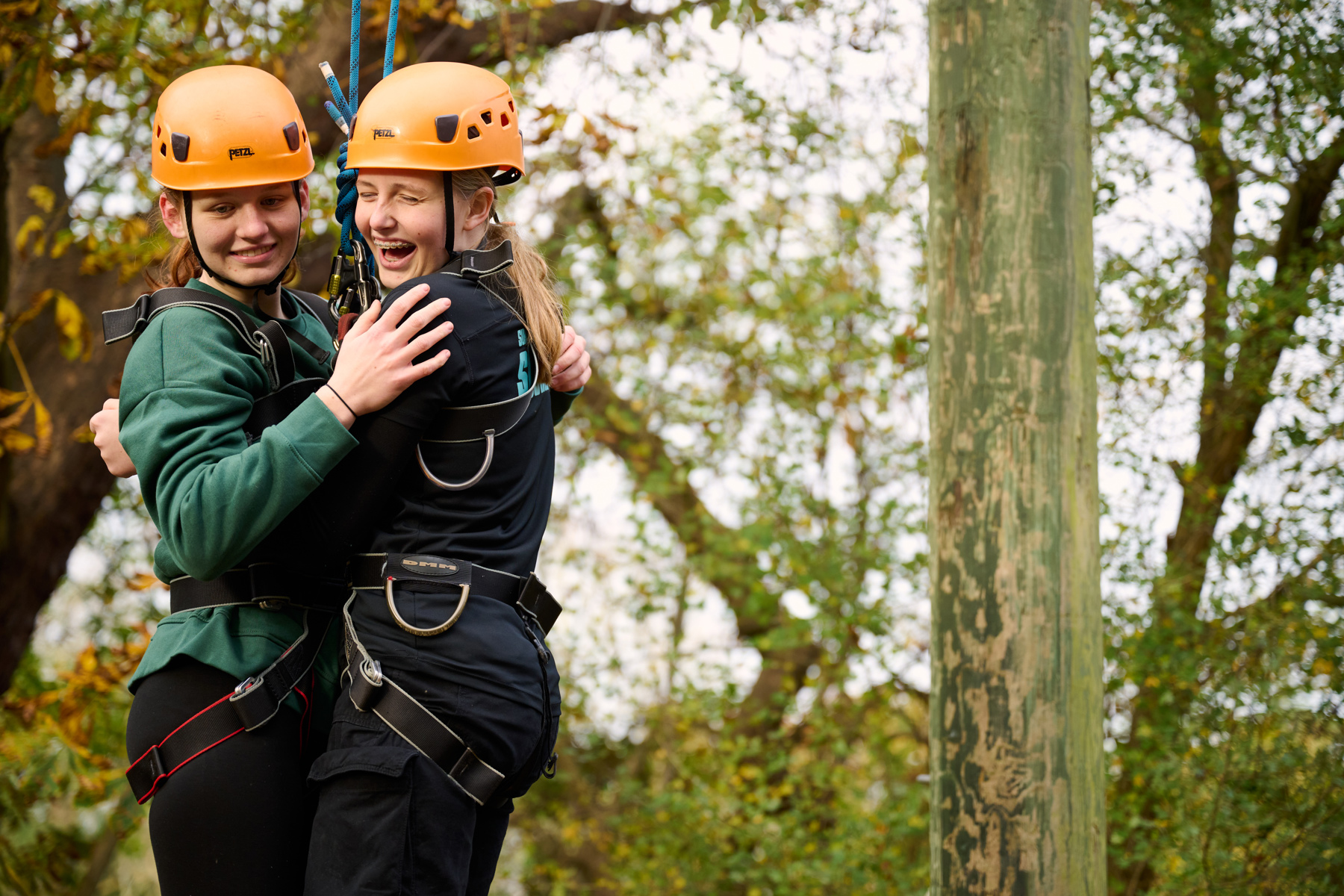
Putting the ‘men’ in menstruation
‘Boys would traditionally have been asked to leave the room when the girls “have the talk” about periods,’ Gabby says. We often separate the genders at school when we’re teaching about puberty, but it’s useful for everyone to know about periods. ‘Just because someone doesn’t experience something doesn’t mean they don’t have empathy,’ she continues. When Gabby started speaking to men about periods for her podcast, it was ‘heartening how much [they] wanted to be involved’.
But how do you start that conversation? For Mark, it was important that it wasn’t solely led by women. ‘From the boys’ point of view, they’d expect the knowledge from a woman. I think it was helpful for them to hear it from a man,’ he says.
Gabby also thinks it can be useful: ‘It’s understandable if they don’t feel like the right person to explain, but if they can be there while it’s happening… it can really help with getting the message across that this affects everyone.’
Mark researched online, and invited a local Red Box Project representative, Sara. She was pleased to find everyone getting involved: ‘The boys weren’t frightened of handling products and asking questions… they were genuinely interested,’ she recalls.
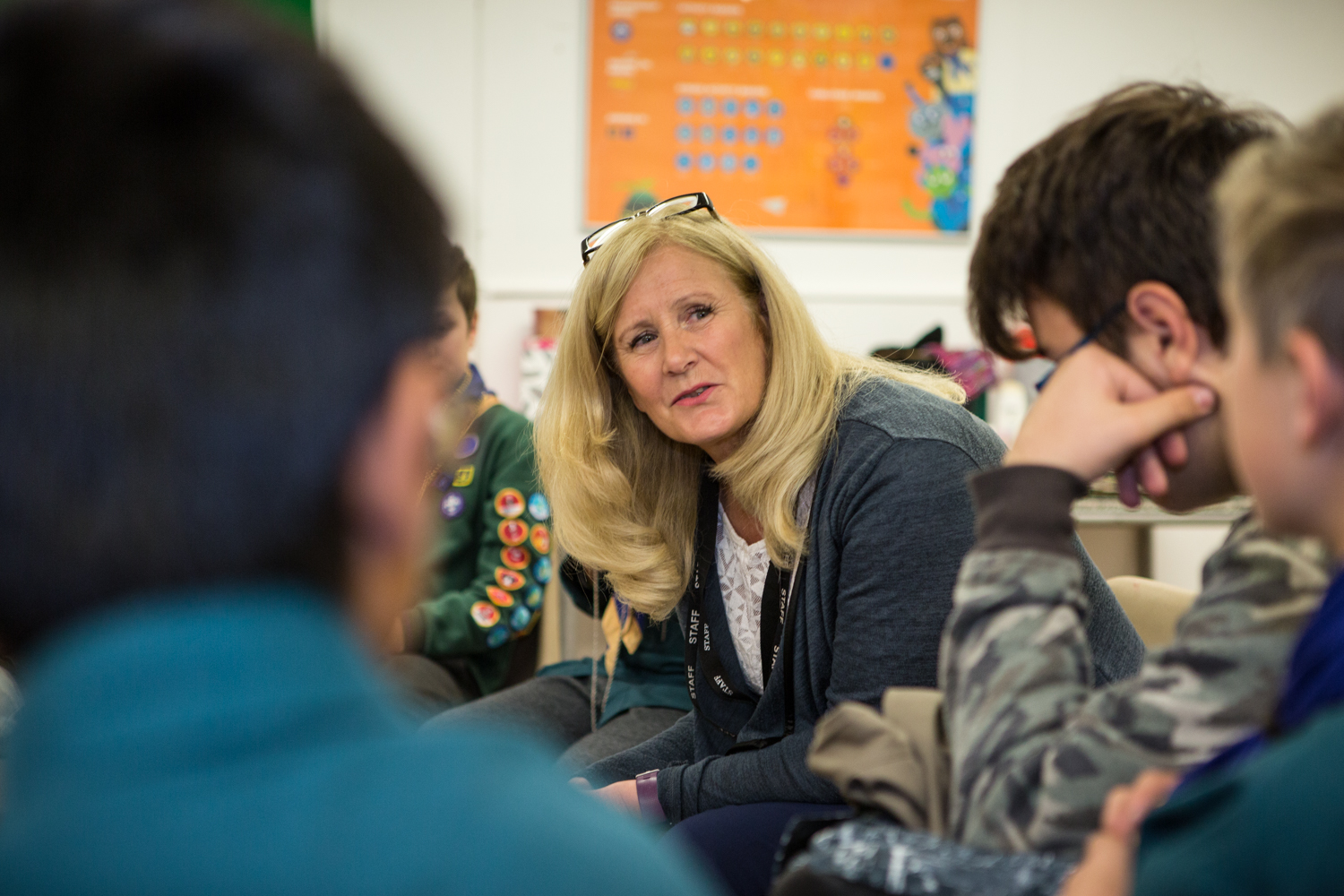
Call it what it is
As most volunteers know, young people can be capable of more than we might expect. When Gabby explained what Bloody Good Period was to some eight year olds, ‘they all understood it immediately. Instinctively. They were too young to have developed any of the shame that older young people can fall prey to. They understand it very logically and literally… that some people bleed from their vaginas on average once a month and that was just how it was. It was a mere bodily function to them, as it should be.’
Mark was ready to deal with some more emotive reactions from the Scouts. ‘I knew they’d go into it with lots of giggles and a few sniggers and disgusted looks,’ he says. ‘For some it was funny, for some a bit difficult, but I was really impressed and proud!’
Broadstone Scout Troop haven’t stopped there. They now have their own red box, topped up by the group with supplies for anyone who needs them. They’ve sent information to parents and carers; any donations go straight back to the Red Box Project.
Mark also shared his resources online. ‘I know of at least four groups who have run that night,’ he says. ‘That was a massive positive, and I was really happy about that. I’m hoping to run the same sort of thing for the other Troops in our group as well.’
Check out our resources to find out how you could run a session about menstruation to help Scouts tackle period stigma and period poverty.
